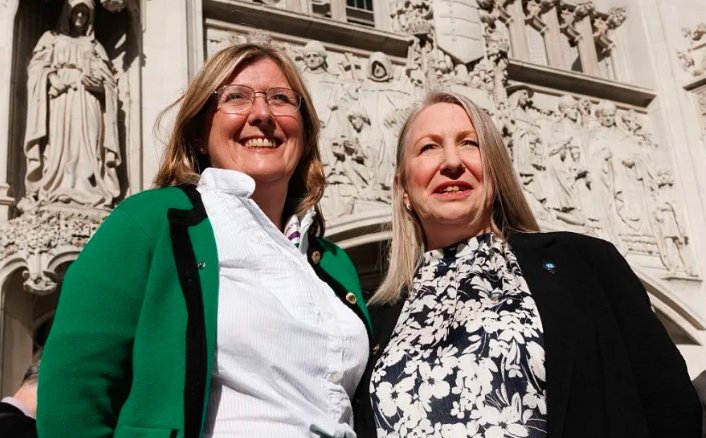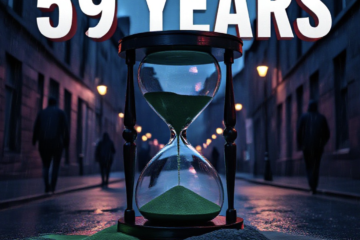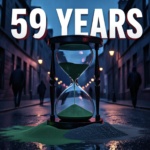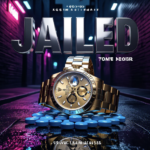Susan Smith, a key figure in the women’s rights group For Women Scotland, faces a police recorded warning after an alleged umbrella damage during a rally outside the Scottish Parliament. The incident on September 4, 2025, at Holyrood sparked a confrontation with a counter protester and has now drawn sharp criticism toward Police Scotland’s handling of the event.
The Holyrood Protest and Umbrella Confrontation
The rally, called Women Wont Wait, brought together supporters urging the Scottish Government to speed up changes based on a recent Supreme Court decision about gender definitions. Dozens gathered to voice concerns over delays in protecting single sex spaces for women. As speakers addressed the crowd, a counter protester known for disrupting such events arrived with a loud sound system blasting music to drown out the messages.
This led to a tense moment involving Susan Smith. She approached the counter protester, who held a rainbow colored umbrella, to ask him to lower the volume. Witnesses say the umbrella was already damaged before any interaction. Video footage from the day shows the brief scuffle where Smith reportedly grabbed part of the umbrella, resulting in a complaint of minor vandalism against her. The counter protester claimed the item broke during the exchange, but supporters argue he used it aggressively, almost like a weapon, toward her face.
The event highlighted ongoing tensions in Scotland’s debates on gender recognition reforms. For Women Scotland has long campaigned against what they see as threats to women’s rights from self identification policies. This protest came months after the group celebrated a legal win that clarified sex based protections under the Equality Act.

Police Action and the Recorded Warning Offer
Police officers at the scene did little to stop the loud music disruption at first, allowing the counter protester to continue for some time. Days later, the vandalism complaint surfaced, leading to an investigation by the Scottish Parliament Policing Unit. On October 28, 2025, Susan Smith received a summons to a police station in Edinburgh. There, she was offered a recorded warning, which would stay on file and could appear in future background checks.
If she refuses the warning, as she plans to do with legal support, she risks a full criminal charge for minor vandalism. This could send her case to the Procurator Fiscal and potentially lead to court. Legal experts note that such warnings are meant for low level offenses, but critics question why this minor issue escalates while the disruptive behavior went unchecked. Police Scotland has a history of handling protest complaints differently based on the groups involved, fueling accusations of bias in gender critical cases.
To provide a clear timeline of key events:
| Date | Event Description |
|---|---|
| September 4, 2025 | Women Wont Wait rally at Holyrood; umbrella incident occurs during counter protest disruption. |
| Mid September 2025 | Vandalism complaint filed by counter protester. |
| October 28, 2025 | Susan Smith summoned for recorded warning offer. |
| October 29, 2025 | Public backlash grows; Police Scotland announces review of entire protest response. |
| October 30, 2025 | Ongoing review; no final decision on charges yet. |
This table outlines how the situation unfolded, showing the rapid shift from protest to potential legal action.
Backlash from Supporters and Free Speech Advocates
Reactions poured in quickly after news of the warning broke. Many called the police move mind boggling, pointing out the imbalance in addressing complaints. Supporters of For Women Scotland shared videos online proving the umbrella’s prior damage and the counter protester’s aggressive tactics. One key ally, the Free Speech Union Scotland, stepped in to provide a criminal defense solicitor for Smith. They argue this is a clear example of using state power to silence dissenting views on sex and gender issues.
Fraser Hudghton, director of the group, stressed the need for police accountability. He highlighted how radical activists exploit complaint systems to target women’s rights advocates. In recent months, similar incidents have occurred at other rallies, where disruptions by opponents go unpunished. This case echoes broader concerns in the UK about free speech at protests, especially after high profile arrests of gender critical speakers elsewhere.
Public figures and online communities rallied behind Smith, with thousands viewing shared footage. Some drew parallels to past events, like the 2024 Supreme Court ruling that For Women Scotland helped secure, which affirmed that sex is biological and not changeable by gender recognition certificates. That victory led to policy reviews, but implementation has been slow, frustrating campaigners like Smith.
Key points from supporter reactions include:
- The counter protester’s history of attending events to harass women with noise and props.
- Lack of action against the loud music, which violated peace disturbance rules.
- Questions about why a broken umbrella warrants a criminal record threat while potential assault attempts do not.
- Calls for MSPs to investigate police bias in handling gender related protests.
These voices underscore the emotional toll on activists fighting for what they see as basic rights.
Police Review and Broader Implications for Protests
In response to the outcry, Police Scotland announced a review of their entire handling of the September 4 protest on October 29, 2025. This includes the umbrella complaint and overall event management. A spokesperson stated that no final decision on the matter will come until the review wraps up, leaving Smith’s next steps in limbo. This backtrack suggests public pressure is influencing the process, but it also raises doubts about initial police judgment.
The review could lead to dropped charges or even action against the counter protester for antisocial behavior. Scotland has seen rising tensions in women’s rights debates since the Gender Recognition Reform Bill debates in 2023. Groups like For Women Scotland report increased harassment at events, yet police responses vary. In one recent case, a similar disruption at a Glasgow rally went without arrests, while this Edinburgh incident escalates quickly.
Experts worry this sets a dangerous precedent for protest policing. If minor property claims can lead to warnings for one side but not the other, it chills free expression. Women’s rights campaigners urge faster government action on the Supreme Court ruling to avoid more street clashes. For now, Smith remains defiant, backed by a growing network of allies.
This story ties into timely questions about balancing free speech and public order in Scotland’s evolving social landscape. Readers dealing with similar activism challenges might find resources from groups like the Free Speech Union helpful for legal guidance.
Share your thoughts on this incident in the comments below and spread the word to keep the conversation going.


















